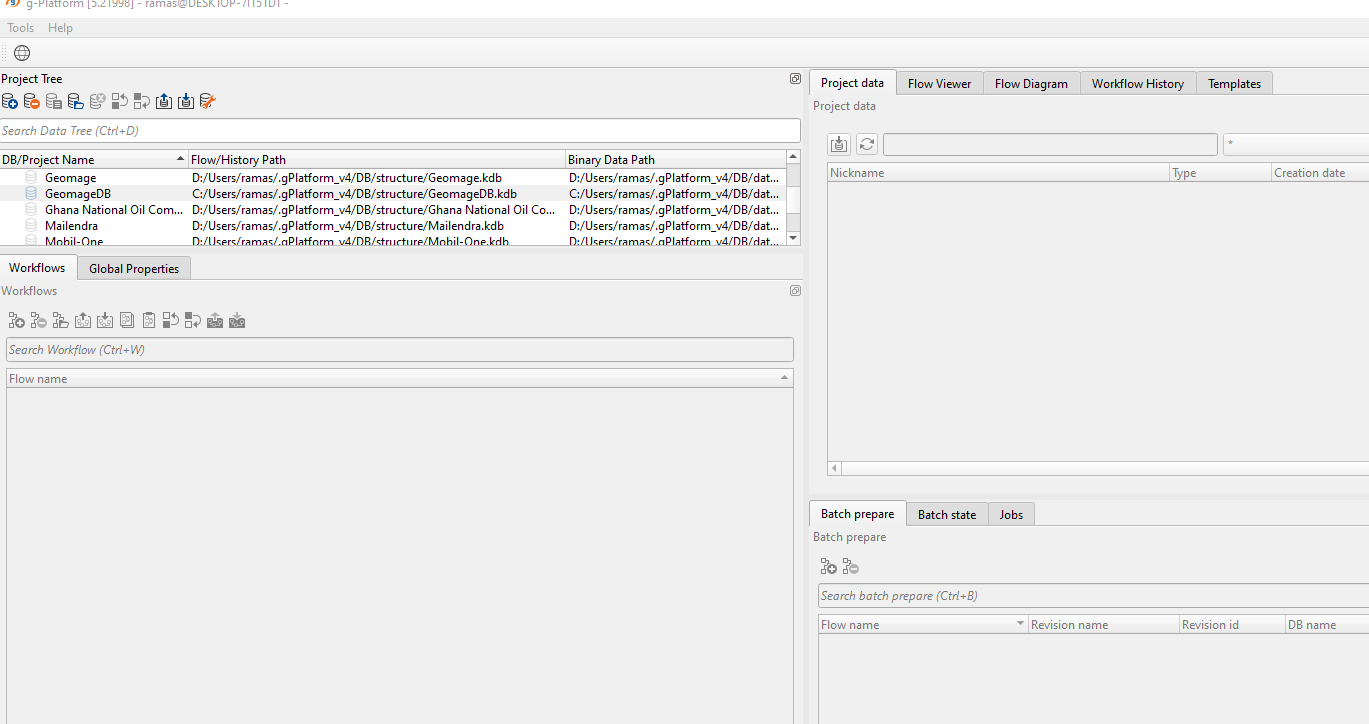g-Platform is the main window where the user creates the project database, workflow(s), project data etc. Once the project creation part is over, the user needs to create the workflow(s). This is where we will be heading into g-Navigator which is part of the g-Platform software suite. Inside the g-Navigator the user will build the workflow, assign the parameters, visualize the data etc etc.
Let's jump into the main window of g-Platform and start creating our first project.
To start the g-Platform from the windows environment, the user should click on the short icon on the desktop. For Linux users, they should go to the installation path of the g-Platform and type the command ./gPlatform.sh & and press Enter. After the launch, the g-Platform window looks something similar to the below image.
Please make a note of it that the default set up will be different from the one we are presenting here with respect to placing of the windows/tabs etc. The user can lock/unlock these windows/tabs as per their preferences.

Let's discuss each one of the windows/tabs briefly to understand the significance of each one of them.
•Project Tree The place where we create the project and assign the data paths
•Workflows Giving a name to a workflow
•Global Properties In case of batch processing, we define the global properties in this tab. We have the option to import CSV files.
•Project Data All the project data will be available for quick access. The user can search the dataset(s) using the search option at the top.
•Flow Viewer This display the contents/modules of a workflow.
•Flow Diagram This is a flow chart that is automatically created while the user creating the workflow. It's kind of a graphical representation of the flow.
•Workflow History It records the changes made during the workflow build up and keep a copy with a revision ID.
•Templates Workflows were already prepared for the user convenience. The user can copy/paste these templates and start working on it.
•Batch prepare This is useful when we are doing multiple (100's of) lines of processing
•Batch state This shows the status of the batch. Whether the batch is in a execution state or any errors etc
•Jobs It will display the current running jobs in the batch mode as well as the running g-Navigator sessions.